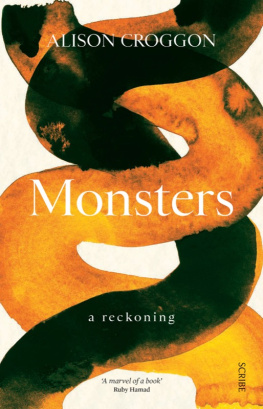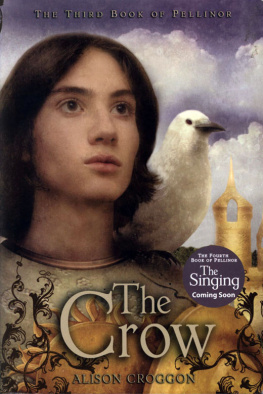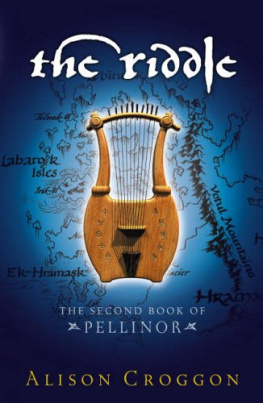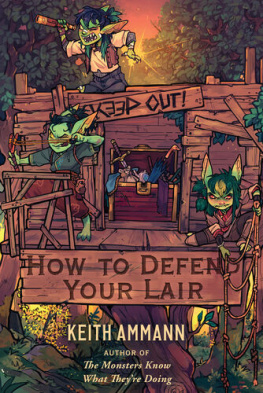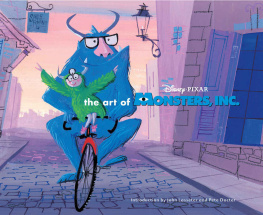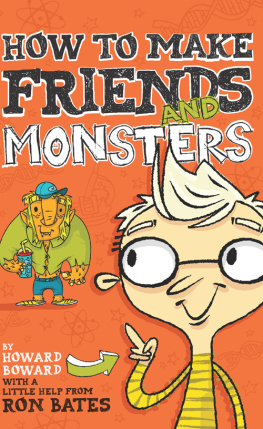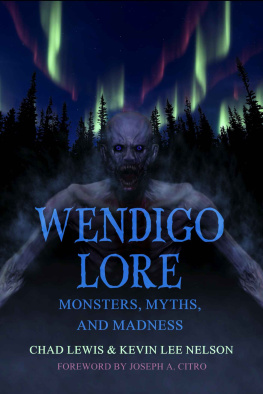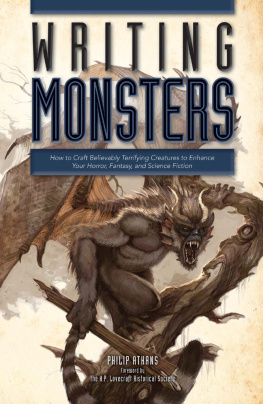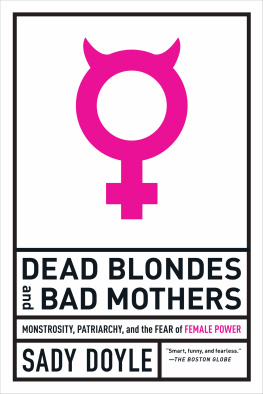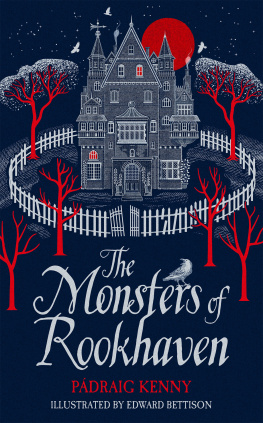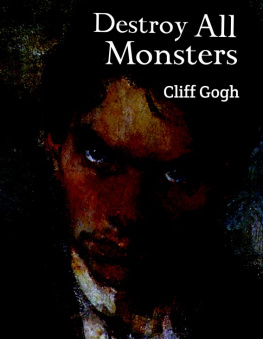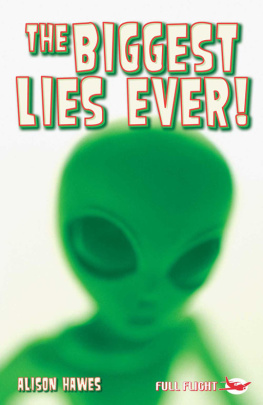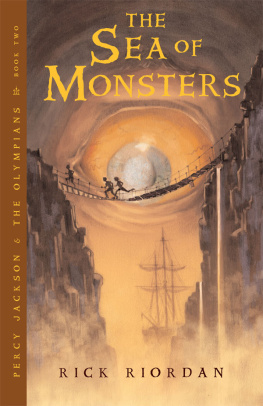
Contents
Monsters
Alison Croggon is an award-winning novelist, poet, theatre writer, critic, and editor who lives in Melbourne, Australia.
Scribe Publications
1820 Edward St, Brunswick, Victoria 3056, Australia
2 John Street, Clerkenwell, London, WC1N 2ES, United Kingdom
3754 Pleasant Ave, Suite 100, Minneapolis, Minnesota 55409, USA
First published by Scribe 2021
Copyright Alison Croggon 2021
All rights reserved. Without limiting the rights under copyright reserved above, no part of this publication may be reproduced, stored in or introduced into a retrieval system, or transmitted, in any form or by any means (electronic, mechanical, photocopying, recording or otherwise) without the prior written permission of the publishers of this book.
The moral rights of the author have been asserted.
9781925713398 (Australian edition)
9781913348717 (UK edition)
9781950354603 (US edition)
9781925938821 (ebook)
Catalogue records for this book are available from the National Library of Australia and the British Library.
scribepublications.com.au
scribepublications.co.uk
But in order to deal with the untapped and dormant force of the previously subjugated, in order to survive as a human, moving, moral weight in the world, America and all the Western nations will be forced to re-examine themselves and release themselves from many things that are now taken to be sacred, and to discard nearly all the assumptions that have been used to justify their lives and their anguish and their crimes so long.
The Fire Next Time , James Baldwin
Whites, whether American or European, are addicted to delusion.
@annamericana, 3 October 2017
The curse
Unusually, I am alone in the house. Later, I think this is just as well. I dont want any witnesses to my indignity.
No, thats not true.
After I read her letter, I call my father. For once in my life, I permit myself to spill my guts open before him. I have never done this before, in all the conscious years of my five decades on this earth.
I howl down the phone. I display my fury, my spite, my desolation, my bitterness, my anguish. Let it be said. Let it all be said.
When I hang up, theres a momentary respite, as if an abscess has been lanced. But then it pounces, squeezing me in its intolerable grip.
I name it, for the first time.
Its pain. I cant do anything to stop it. I can numb it, or wait for it to go away.
I pour myself a whisky and listen to the weather pursuing its pathetic fallacy: the winter rain, hammering down on my tin roof in the heavy darkness.
It will never all be said.
When one hears about another persons physical pain, writes Elaine Scarry in her scrupulous masterpiece The Body in Pain , the events happening within the interior of that persons body may seem to have the remote character of some deep subterranean fact, belonging to an invisible geography that, however portentous, has no reality because it has not yet manifested itself on the visible surface of the earth.
Pains triumph is, she says, this absolute split between ones sense of ones own reality and the reality of other persons. It is here, says Scarry, that language fails, in this space between what is undeniable for one person and unconfirmable for another. That other person may be so close that they are touching the one in pain, but they may as well be, in terms of their subjective being, inhabiting another galaxy.
Scarry examines the languages in which we attempt to describe physical pain: medical, religious, political, social. And she prises open, with her cool, intellectual scalpel, some of the darkest regions of human experience in particular, the desire to inflict pain on another human being.
She makes a distinction between physical and emotional pain. Unlike physical pain, which has no meaning and no value, psychological suffering does have referential content, so much so that there is virtually no piece of literature that is not about suffering. Physical pain, she argues, is asocial and preconscious, while psychological pain is part of the social experience of the mind. Many people have argued with the absoluteness of this distinction, on many grounds: linguistic, medical, experiential.
Right now, that distinction doesnt seem so absolute to me, either.
I am not expert in the worlds of physical pain. I hope I never will be. I have never been stoic. My experiences have all been temporary: minor accidents, migraines, illnesses, childbirth. Psychological pain? Emotional pain? They abide intimately in my body, in the smell that clings to my clothes and sheets, in the smoky oils in my hair, in my addictions, in the toxic narratives that I wind around myself, consciously and unconsciously, to protect myself.
Now all those narratives are torn open, and here, in the middle of the splintering, I no longer recognise my self. Its as if the self I have known, through myself, through others, is suddenly harshly illuminated from a new angle, all shadows fled. I see the histories that I have denied all my life, the wounds that I have ignored, the pain that I never acknowledged.
We speak of these things in metaphor. The heart, that smoothly muscled pump, can be pierced and torn; its valves can malfunction; its arteries or muscles can bulge and burst. It is an absurdity to say of this fleshly organ that it can break, as if it were made of bone or ice. But we all know what someone means when they say, my heart is broken .
My heart is broken. But now I understand that it always has been broken.
Once upon a time, I began another story with once upon a time. I knew much less then than I do now. I was more hopeful, and more deluded, and almost certainly I had less compassion. Now I am more angry, less hopeful, and both more and less certain.
Even though I know that progress is a myth, I like to think I am a better person than I was or at least, a more knowledgeable person. I am quite possibly exactly the same as I was twenty years ago, in the same way that a fountain, which is always spilling different water, is always the same fountain. Yet I am convinced that something has changed. It feels fundamental.
How does one measure change, especially in something as uncapturable as ones own self? Does a shift in perception count as change, in any case?
I think of the ageing Buster Keaton in Samuel Becketts only movie, Film , an exploration of George Berkeleys pronouncement that to be is to be perceived. Keaton, eighteen months from his own death, plays O, a man who is evading, more and more absurdly, the tyranny of being seen. But he is also escaping the tyranny of being: if to be is to be perceived, then not to be perceived is an extinction.
The cameras indifferent eye stalks O with his head hunched down, his hat over his eyes, flinching away from the gaze of others, as he hurries down a street, up a flight of stairs. At last he escapes to his room, where surely he will be safe. But no, a cat and a dog are looking at him. A parrot. A goldfish. A mirror. He evicts the cat and dog, covers the parrot cage and the goldfish bowl with his coat, conceals the mirror with a blanket. But still there are eyes: the buttons on a folder, the carved mask on the back of a chair, a picture on the wall that he tears down and rips up, trampling it into the ground. And all the time, the camera, which is never acknowledged, records everything for the unknown eyes that will watch it, fifty-two years later, on a computer screen.
Himself, finally, staring one-eyed into the camera with increasing horror, knowing that he cant escape his own perception of himself.
Next page
